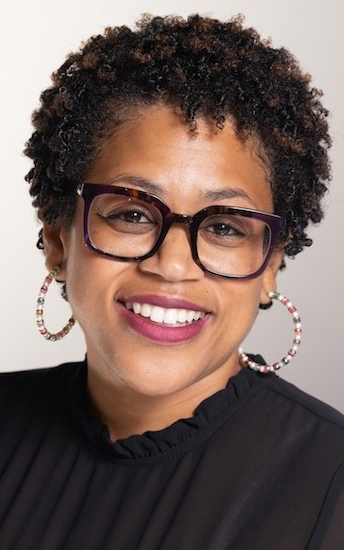Baptist Joint Committee for Religious Liberty has acquired the Center for Faith, Justice and Reconciliation in an effort to expand its work promoting racial and religious freedom.
BJC Executive Director Amanda Tyler said the move announced March 6 also will infuse greater diversity into the ongoing struggle for religious liberty in the United States.
“Across the organization, BJC recognizes that religious freedom has been white too long,” Tyler said. “BJC acquiring the Center deepens our commitment to working for racial justice as a critical part of our mission to ensure religious freedom for all.”
The Center for Faith, Justice and Reconciliation was formed as a legacy project by trustees of the Baptist Theological Seminary of Richmond just ahead of the institution’s closure in 2019.

Sabrina Dent
Sabrina E. Dent, the center’s president since January 2022, will take the helm of what will be called the BJC Center for Faith, Justice and Reconciliation.
“The BJC Center for Faith, Justice and Reconciliation will broaden the conversation about religious freedom,” said Dent, who resigned from the BJC board of directors as part of the acquisition. “For too long, we’ve had a narrow understanding of religious freedom that has shut too many people out of the conversation.”
The new center will house the committee’s Project on Race and Religious Freedom and will operate the Religious Freedom Immersion Experience, which will debut in 2024. And the center will continue to offer the annual Religious Freedom Mobile Institute, with the 2023 theme of encouraging dialogue between Black nontheists and Black church leaders.
The mission of the new center is a serious one, Dent noted. “Religious freedom impacts so many issues, including voting rights. How can we ensure religious freedom without equal access to the ballot box? Who benefits when religious freedom is ideologically boxed off from other issues? These are the types of questions we ask as this work continues into a new phase.”
BJC also announced that Anthony Pinn, professor of humanities at Rice University, will participate in the center’s goal of sparking connections between people of faith and no faith.
“The growth in the number of African Americans claiming to hold to no particular religious orientation has grown during the 21st century,” he said. “Now is the time for explicit and public attention to these questions, and I can think of no institution with which I’d rather partner than BJC. It has a proven track record, and I look forward to our shared conference on these important questions.”
Tyler added that the acquisition will aid in committee’s ongoing campaign against white supremacy and Christian nationalism.
“The BJC Center for Faith, Justice and Reconciliation and the Christians Against Christian Nationalism campaign are both core to our mission of defending religious freedom. We realize … that Christian nationalism is the greatest threat to religious freedom today. These are the latest initiatives in our 87-year history, but rooted in the same principle of religious freedom.”
BJC was founded in 1936 as the Southern Baptist Committee on Public Relations, which joined efforts with a similar organization of the Northern Baptist Convention, which later became American Baptist Churches USA. The National Baptist Convention Inc., became involved in the work shortly after, setting the stage for wide ranging support by several Baptist denominations and associations.
In time, the organization became known as Baptist Joint Committee on Public Affairs.
But harmony gave way to tension during the 1970s and ’80s as Southern Baptists perceived the committee to be overly involved in “liberal” causes and not attentive to the anti-abortion effort. As a result, the SBC drastically cut financial support for the committee in 1990 and eliminated it altogether a year later.
BJC adopted its current name in 2004 to communicate its focus on religious liberty issues and currently is sponsored by 14 U.S. Baptist organizations and a host of individual donors.
BJC advocates for the traditional Baptist commitment to religious liberty for all and the separation of church and state, filing briefs in the U.S. Supreme Court, working with Congress and the White House, and engaging in education efforts.
Related articles:
Remaining BTSR assets granted to two new initiatives in Virginia
The decision to close BTSR was gut-wrenching. It was also necessary | Opinion by Jackie Baugh Moore

